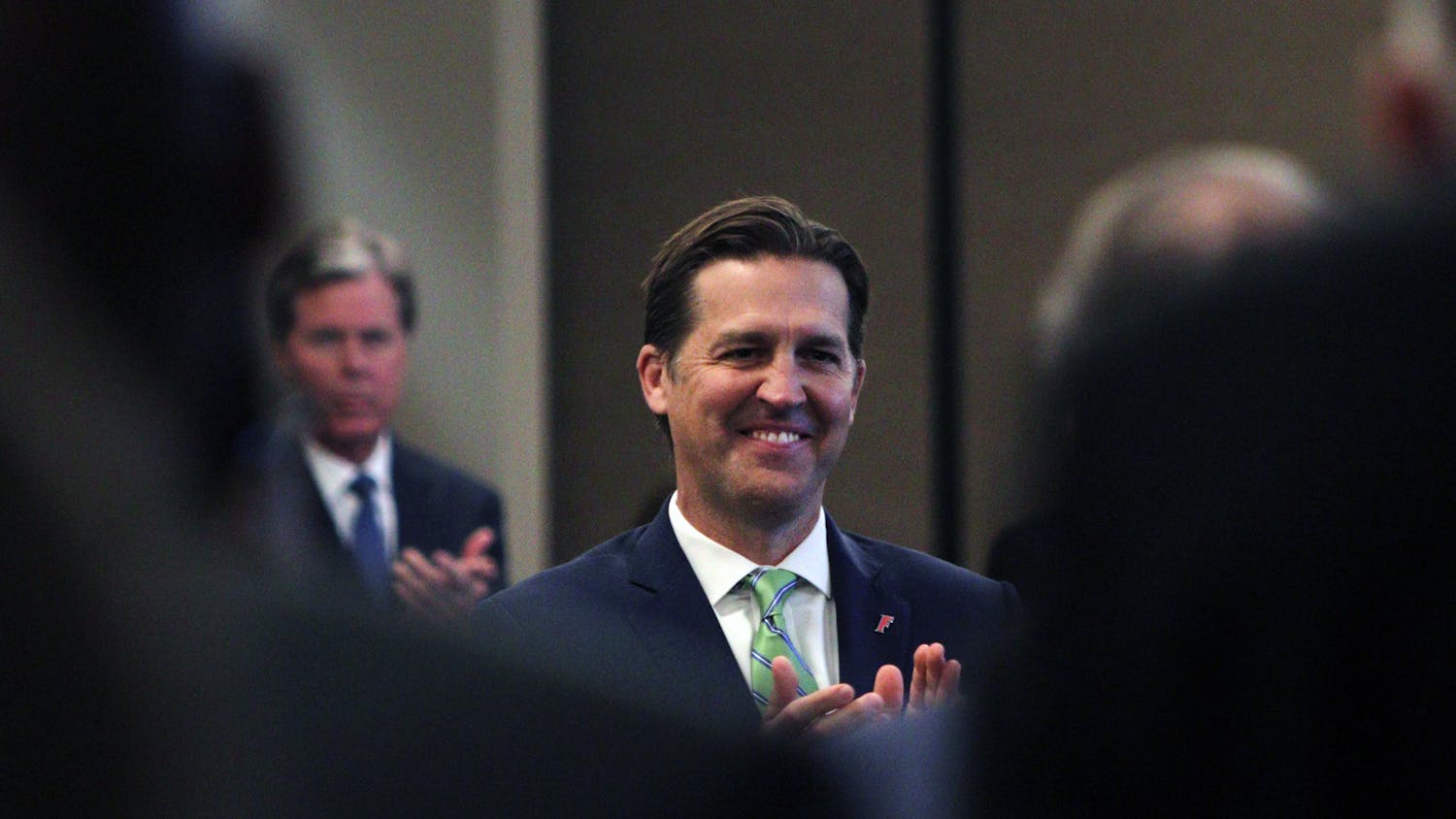For the Alachua County Labor Coalition, getting payment for hourly UF employees doesn’t begin or end with Hurricane Irma.
Members of the labor coalition went to the UF Faculty Senate meeting Thursday afternoon to ask for an endorsement in support of OPS, or Other Personnel Services, employees. They have already received endorsements from other groups and nearly 700 people have signed an online petition.
The group has been pushing for OPS workers, who get paid by the hour, to get payment for the days they missed when UF was closed for Hurricane Irma. Vice President of Human Resources Jodi Gentry said OPS workers are only eligible for time worked and not paid leave, a condition mandated in their contract, according to Alligator archives.
“I think that, on legal grounds, it’s absolutely correct,” said Paul Ortiz, the vice president of UF’s chapter of United Faculty of Florida and a UF history professor. “But we’re really asking the university to do the right thing.”
Ortiz told the Faculty Senate hourly employees were affected by the lack of wages on the three days UF was closed in September. A paper passed out to members of the labor coalition mentioned employees had to rely on emergency food banks and charity to make up for the lost wages.
“I believe that personally this is a really important issue for us to pay attention to,” Ortiz said as he addressed the Senate. “Because there are hundreds of thousands of wages lost by OPS employees who are our colleagues, counterparts and members of the community.”
David Quillen, the chair of the Faculty Senate, said the Infrastructure Council will look over the issue and then bring it to the steering committee, who will then present a resolution to the full Senate body.
He said it’s less the place of the Senate to comment on what happened in the past, but they can make a statement about OPS workers moving forward.
“I think we as an institution need to evaluate how we use our OPS fee, and is the model fair?” Quillen said.
He said OPS fee is meant for temporary or part-time workers, but the average OPS employee may be in their position for two or three years.
“The real hard part is, do we have resources to make a change?” he said. “That’s something all faculty care about and something President Fuchs cares about.”
Jason Fults, the co-chair of the Alachua County Labor Coalition, said he plans to meet with UF’s administration one way or another.
He said OPS workers are treated like second-class citizens constantly. For example, he said, the workers won’t get paid time for Thanksgiving Break or sick days off.
“It’s not really an isolated incident at all. It happens every semester, even if there’s not a storm or a white supremacist.”





